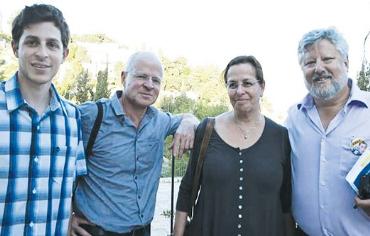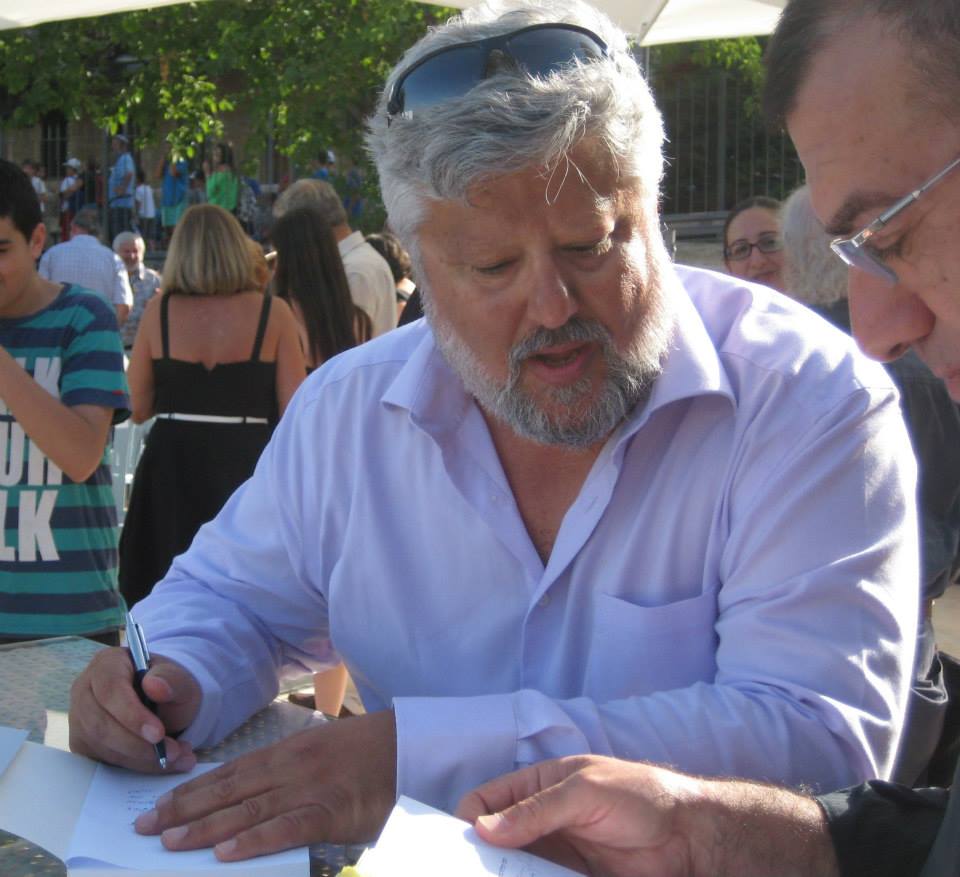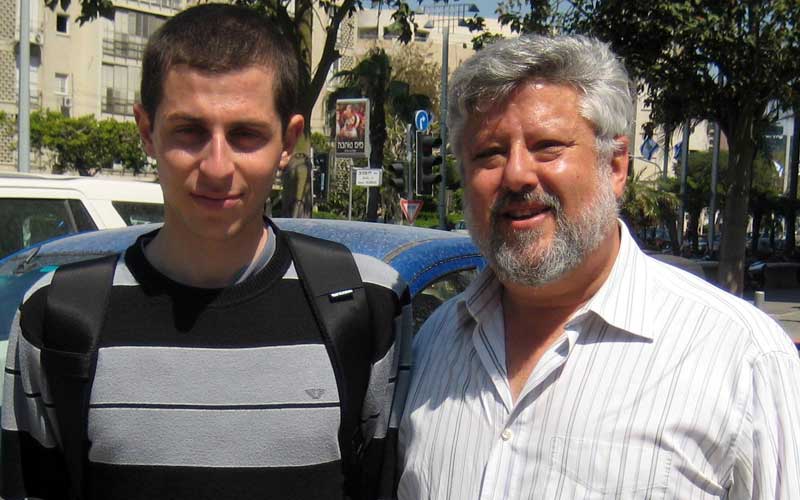Back in 2006, a 19-year-old Israeli soldier named Gilad Schalit was the victim of a weapon of disequilibrium.
Since Hamas could not defeat the Israel Defense Forces (IDF) in open battle, their operatives entered Israel through an underground tunnel from Gaza, snatched the young corporal from a military outpost, and locked him up as a hostage to be traded with Israel for Palestinian prisoners. Just as Hamas intended, “People all over the world would come to know Gilad’s name,” Gershon Baskin (with Ilene Prusher) writes in “The Negotiator: Freeing Gilad Schalit From Hamas” (The Toby Press, $24.95).Baskin is the man who conducted the successful negotiations with Hamas that eventually resulted in Schalit’s release more than five agonizing years later. As it happens, Baskin is a relative of the young soldier, but, more significantly, he is a veteran of social and political activism in Israel. On the day of the abduction, for example, Baskin was attending a conference of Israeli and Palestinian peace activists in Jordan, and he immediately put himself in service to the campaign to liberate the soldier, not through a daring rescue mission but by the equally daring approach of opening a conversation with Hamas.
Baskin says his book is about “the naïve, wildly optimistic belief that one citizen can make a difference,” but it also shows us how it is possible to conduct effective diplomacy even with a bitter adversary. “True, the organization’s charter calls for the destruction of Israel, my chosen home,” Baskin writes. “But after three decades of work on resolving the Israeli-Arab conflict, I understood the complexities of Palestinian politics well. I had seen sworn enemies communicate, if not necessarily agree. I knew that if I could get the right people talking, we could bring Gilad home.”
“The Negotiator” is a fascinating insider’s account of the real work of back-channel diplomacy and the intimate character of Israeli politics. Baskin discloses, for instance, that he was able to contact then-Prime Minister Ehud Olmert because he had met Olmert’s daughter at a political demonstration and enlisted her assistance. She proposed that Gilad’s father, Noam, should be the one to contact her father and ask that Baskin be allowed to pursue his leads inside Hamas. “Tell Baskin to take my daughter out of this!” an enraged Olmert was reported to say.
We quickly discern that it took real courage for an Israeli to persist in private talks with Hamas leaders, but there was courage on the other side of the border, too. Hamas is riddled with factions, and some of its leading members were fearful of being too closely associated with a deal with Israel. “No one in Hamas would give an official paper,” Baskin reports; the decision-maker in Hamas reportedly “agreed to every word in the document, but … wouldn’t sign anything.” Indeed, Baskin credits the principal Palestinian negotiator, a former Hamas official named Ghazi Hamad, with “negotiating an end to this long and bitter saga.”
Baskin makes some startling disclosures as he describes the on-again, off-again course of negotiations. The basic deal that led to Schalit’s release was in play as early as 2007. “Why Gilad Schalit had to spend nearly five more years in captivity — not to mention the 1,027 Palestinian prisoners who got their freedom in exchange — is a troubling question that only Hamas and the Israeli leadership can answer in full.” Meanwhile, the Schalit family was forced to endure a roller coaster of failed expectations: “Every day new rumors, new hopes, and new disappointments.”
Over the long years of negotiations, the larger conflict between Israel and Hamas repeatedly flared up. When the IDF moved into Gaza during Operation Cast Lead in 2008, Baskin feared for the life of the hostage: “Several members of the Israeli government told me that Olmert and [Defense Minister Ehud] Barak intended to rescue Schalit,” Baskin writes. “I hoped that they would, and that Gilad would survive the bombing and any Hamas retaliation. But I was not at all convinced that Gilad Schalit would be alive at the end of Cast Lead.”
We know how “The Negotiator” ends, of course: “Gilad is with us in Israel!” was the text that Baskin received after the young man stepped out of captivity at last. Yet there is an uncomfortable disequilibrium to the release of prisoners that was finally agreed upon, one Israeli soldier for more than 1,000 Palestinian prisoners, many of whom had spilled Israeli blood.
“The Negotiator” is not entirely reassuring when it comes to the larger peace process. “Look, Gershon, I will never recognize Israel or make peace with it,” one senior Hamas leader told Baskin. “Neither will my son. What my grandson will do, I do not know.” But Baskin insists on seeing a glimmer of hope in these words: “At least the door might open in two generations.”
The lesson to be learned here is that it took years of patient, meticulous and tireless efforts to win the release of a single Israeli hostage. How much longer might it take to achieve a comprehensive peace between Palestinians and Israelis? The prodding and poking of John Kerry seems silly when compared to the trials and tribulations that Gershon Baskin endured. Indeed, I hope that the readership of Baskin’s compelling book will include our secretary of state.



